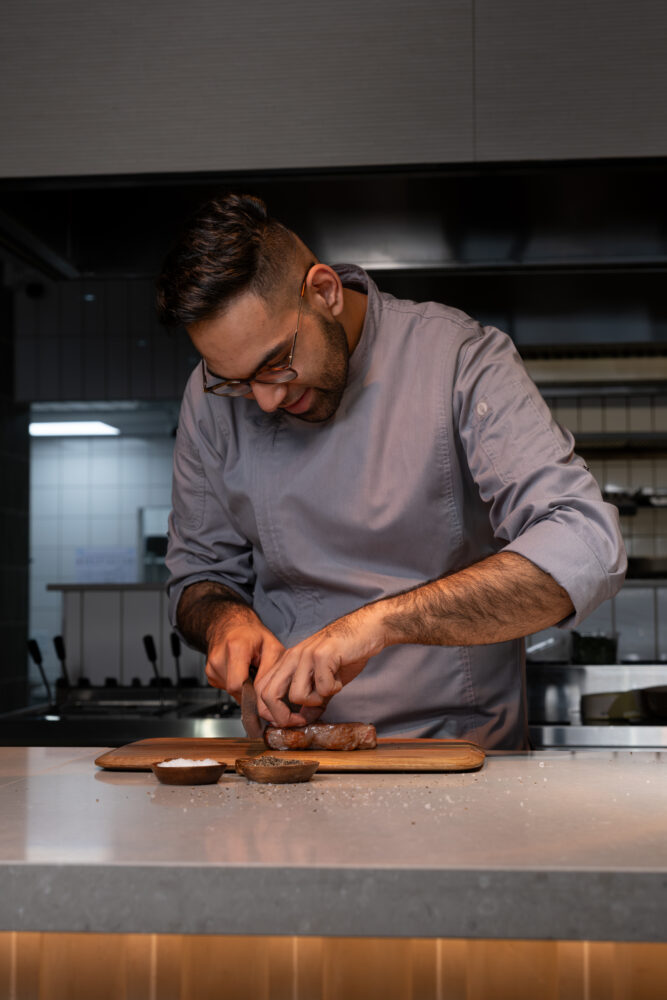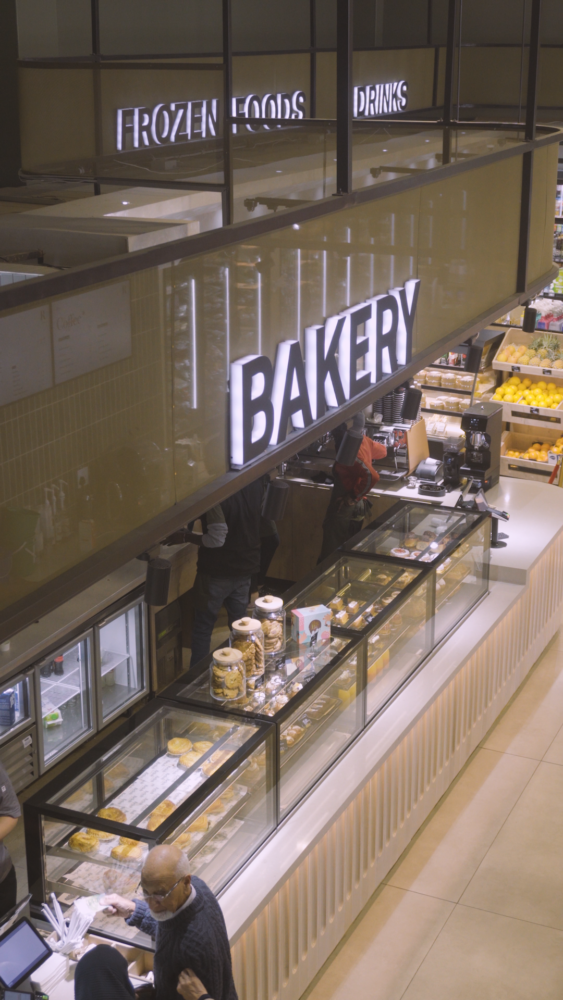Refuel: Relish Deluxe, a café, deli, grocer and late-night diner in a garage forecourt on Johannesburg’s Jan Smuts Avenue, is open 24 hours a day.
It’s just past midnight in Rosebank and the streets have exhaled their daytime rush.
On Jan Smuts Avenue — where Parkwood and Rosebank blur — a new energy stirs. The neon glow of Minty’s garage cuts through the night, not for fuel, but for the irresistible pull of wood-fired dough, chipotle’s smoky heat and bold espressos.
Welcome to Relish Deluxe, Johannesburg’s 24-hour culinary haven, where a wagyu burger at 3am, fresh-baked croissants at dawn or a lingering coffee in a reimagined forecourt feels like a quiet revolution.
Only six weeks old, Relish has already woven itself into Jozi’s fabric. On two recent weekends, we turned around — upstairs seating packed, the forecourt alive with groups under orange streetlights.
Even on a Wednesday evening, it’s buzzing; less jam-packed, but no less inviting. And the hype delivers: a Mexican pizza with a charred, chewy crust; steak frites kissed with chimichurri and an Asian slaw chicken burger, tangy and unforgettable.
This isn’t fast food. It’s memory in motion. A love letter to a city that never sleeps.

Relish is a café, deli, grocer and late-night diner in one. It fills a gap in Johannesburg’s foodscape — high-quality, halaal dining that defies the clock. Think buttery croissants, soft-serve swirls, artisanal pastas and pantry staples; available always.
Young chef Muhammed Patel, in the industry for eight years, channels his family’s culinary heritage.
“My grandfather cooked for hundreds at weddings,” he says. “Food was our heartbeat. Now it’s Relish’s.”
His kitchen marries tradition with precision — wagyu burgers are decadent, pizza crusts sing with char and the ras malai cheesecake with saffron and cardamom is decadently unforgettable. “Whether it’s 2pm or 2am, the standard holds.”
Relish sits steps from The Pantry, another petrol-station-turned-destination, signalling a shift in how Jozi eats and gathers. These spaces — once transient, functional — now pulse with connection, embodying the principles of new urbanism.
Like London’s Boxpark or Brooklyn’s warehouse food halls, Relish transforms under-used infrastructure into cultural real estate. A petrol station becomes a plaza. A public square in disguise.
What sets Relish apart is its ethos.

“The food is halaal,” Patel says, “but the space is for everyone.”
In South Africa, where halaal dining is often sidelined or stereotyped, Relish integrates it seamlessly. Every ingredient is certified, every supplier vetted; not to exclude, but to build trust. That trust draws a diverse crowd: students debating gigs, healthcare workers unwinding, older patrons savouring morning lattes.
Upstairs, conversations spill into the night; downstairs, the wood-fired oven flickers, coffee cups clink and strangers become regulars.
This fluidity mirrors Joburg’s evolving identity, a city of hybrid spaces for hybrid lives. Historically shaped by division and utilitarian planning, Jozi now finds belonging in places like Relish, open 24 hours, to all.
The global halaal food market, projected to grow from $2.5 trillion this year to $5 trillion by 2033, reflects the rising demand for ethical, transparent food; not just among the world’s two billion Muslims, but across demographics. South Africa, with 80% of supermarket products halaal-certified, has long lacked consistent, high-quality halaal dining at odd hours. Relish fills this void.
Relish isn’t just feeding Jozi, it’s reshaping its nights, softening its edges. Where once there was fuel and function, now there’s flame, flavour and fellowship.
As Patel puts it: “We’re feeding Jozi’s soul, one plate at a time.”
Under the warm hum of a reimagined service station, it’s not a tagline, it’s the rhythm of a restless city, reborn.
Crédito: Link de origem

